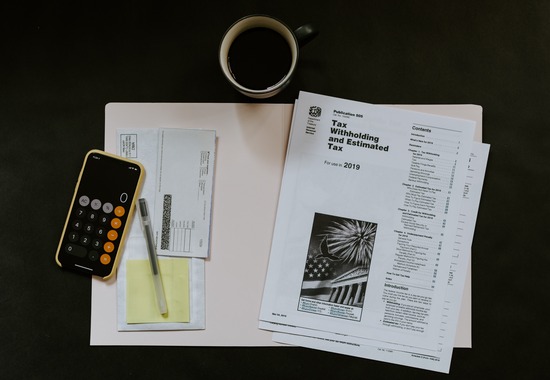
Financial health is typically the state of your finances and depends on how you manage your monthly remittances and save toward retirement. Financial health incorporates four key elements: spending, saving, borrowing, and planning.
When you’re financially stable, it’s easy to manage your expenses, overcome financial hiccups, set your goals, and achieve them. This post will help you improve your financial health and provide tips to stay out of debt, so keep reading.
1. Draft a Budget
One way to improve your financial situation is to create a budget. A budget is a plan for channelling your income to achieve your financial needs and goals.
This means being able to afford your monthly expenses and attaining financial freedom during retirement. Most importantly, a budget will help you live within your means and clarify the essential things and those you can do without.
2. Find Ways To Cut Expenses
Another way to improve your financial health is by reducing your overhead costs.
You can find ways to cut expenses in two primary areas — discretionary spending and basic expenses. Discretionary spending is primarily non-essential spending on things like entertainment and eating out.
To reduce such, you must commit to your goals, lower temptation, and look for budget-friendly alternatives. Basic expenses, on the other hand, can be reduced through coupons and shopping sales. Alternatively, you can cut on housing costs by moving to a less expensive house or getting a roommate to help split expenses.
3. Create a Financial Plan
A financial plan is a complete guide on allocating your income toward the life you want today and in the future. This includes setting money goals, adjusting your budget to meet them, disregarding the risks involved, and tailoring your assets to match.
A financial planner can help you create a financial plan and guide you through various personal goals, such as buying a home. Financial planning can make you feel secure about the future and help you improve your financial health.
4. Track Your Spending
While creating a budget is a dynamic move, sticking to it is a daily commitment that needs you to be staunch but flexible. This is because the small decisions you make, such as what to have for dinner and whether to revamp your wardrobe now or later, can result in definite success or failure toward your budget.
The best way to approach this is through a budgeting app — it will help you categorise and track your spending. However, if you spend more than intended when shopping, you can pivot to cut expenses in a discretionary area such as entertainment.
5. Create a Plan for Debt
Having a debt plan is essential to prevent bad debt. A good rule of thumb is to avoid high-yield debt and stop relying on debts to fund your expenses. Using credit cards for your daily spending and paying off the balance is better than getting public assistance from creditors.
The best part of this strategy is that you can pay off balances before interest accumulates and maximise credit card rewards. Planning how you intend to manage your debts will help avoid high-interest rates.
If you’re having trouble creating a debt plan, seeking assistance from reputable debt services such as IVA UK is paramount. They will analyse your credit report to get a clear glimpse of all your debts and then offer solutions to help you manage your debt effectively.
6. Build Your Emergency Fund
Whether you’re a corporate employee or a non-executive worker, dedicating an account to emergency funding is essential. An emergency fund covers unexpected expenses, including expensive car repairs, tax bills, or other catastrophes.
If you have already dedicated an account for emergencies, checking in to ensure you’re saving enough is advisable. The general rule of thumb is to keep at least six months of overhead costs in your emergency fund, then calculate the figures to see how content you feel.
The total amount should determine whether or not to funnel more money into your account. However, if your emergency fund is increasing rapidly, contributing the surplus fund to an IRA or financing a financial goal ensures better value for your money.
7. Automate Saving
Many financial advisors often overlook this saving mantra — paying yourself first. Paying yourself first is setting aside money for your savings before allocating funds to overhead costs and spending. This is because there are minimum temptations compared to when you have cash in your checking account.
The best approach to this is by automating your savings. You can liaise with your employer to split your deposits between your checking and savings accounts, then direct a portion toward a high-interest savings account. The 401(k) and individual retirement accounts (IRA) are excellent examples of high-yielding savings accounts worth investing in.
Final Thoughts
Financial health comprises a lot, but money habits play a significant role in building wealth and financial security. These money habits include budgeting, saving, and being cautious about debts. Besides that, set goals that motivate you to do better financially and periodically get in touch with a financial advisor to educate you on tips for improving your economic well-being.
